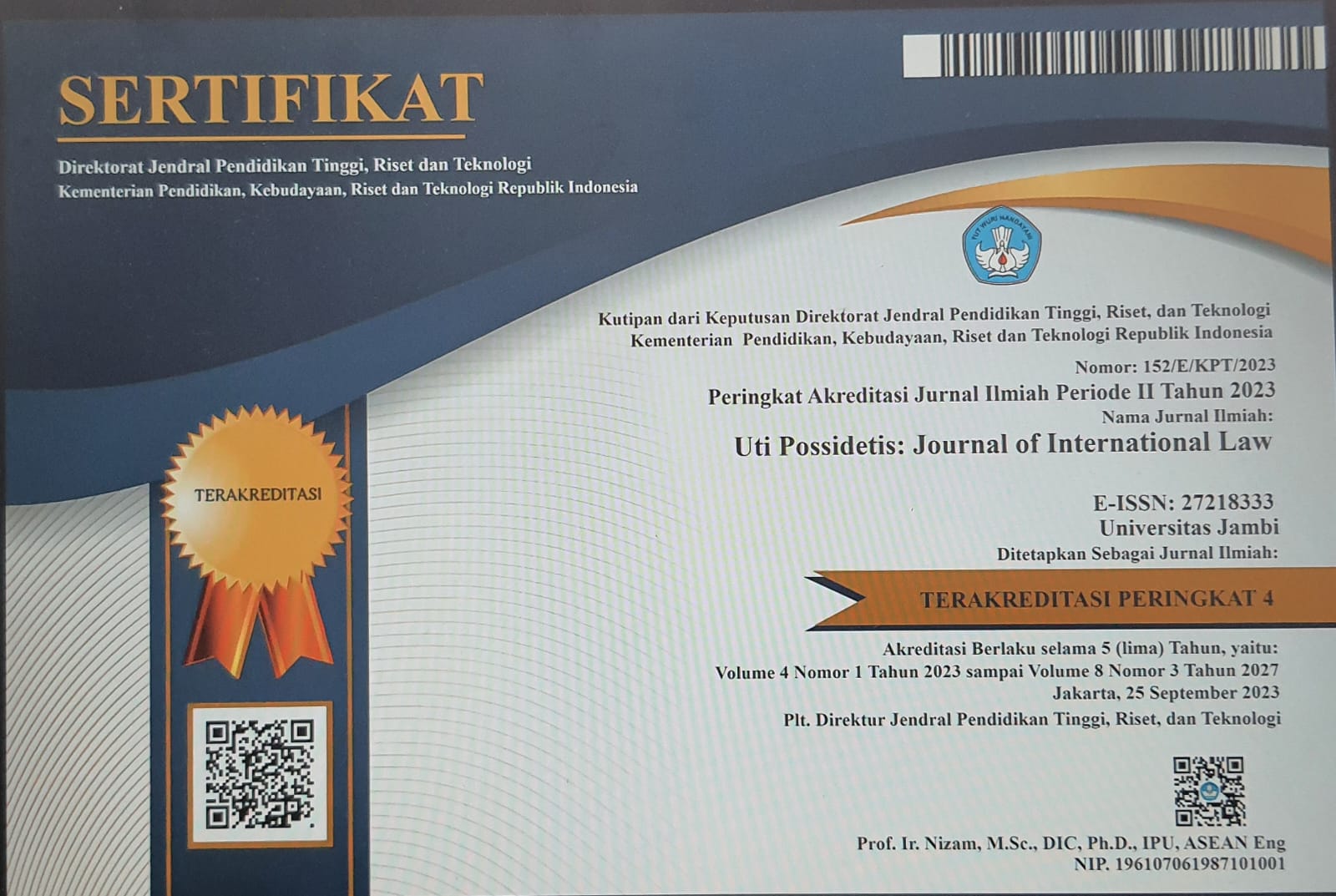ICJ’s Advisory Opinions: Legal Basis and Implication on Indonesia
DOI:
https://doi.org/10.22437/up.v6i1.39359Keywords:
advisory opinions;, icj; , indonesia.Abstract
This paper explores the legal basis and implications of Advisory Opinions rendered by the International Court of Justice with special emphasis on their relevance to Indonesia. Using a normative-analytical approach and international legal theory, this study examines the role of the International Court of Justice in issuing Advisory Opinions and their impact on states behavior and institutional actions. The paper found that while the advisory opinions were not binding, they effectively provide clarification on complex legal issues, including human rights issues, environmental law, and territorial disputes. Advisory Opinions assist Indonesia in overcoming maritime disputes within the framework of ASEAN, such as the case of the North Natuna Sea, and in implementing international agreements such as the United Nations Convention on the Law of the Sea (UNCLOS) at the national level. Therefore, Advisory Opinions provide legal certainty, establish international legal norms, and facilitate cooperation between countries. This paper recommends that Indonesia use the Advisory Opinions to strengthen its legal arguments in addressing international disputes to which Indonesia is a party, increasing Indonesia's confidence in its role in diplomacy at the regional level, and in addressing transnational challenges such as environmental protection and regional security.
Downloads

Downloads
Published
How to Cite
Issue
Section
License
Copyright (c) 2025 Agit Yogi Subandi Subandi; Isroni Muhammad Miraj Mirza Mirza; Sona Asnawi Asnawi

This work is licensed under a Creative Commons Attribution 4.0 International License.















